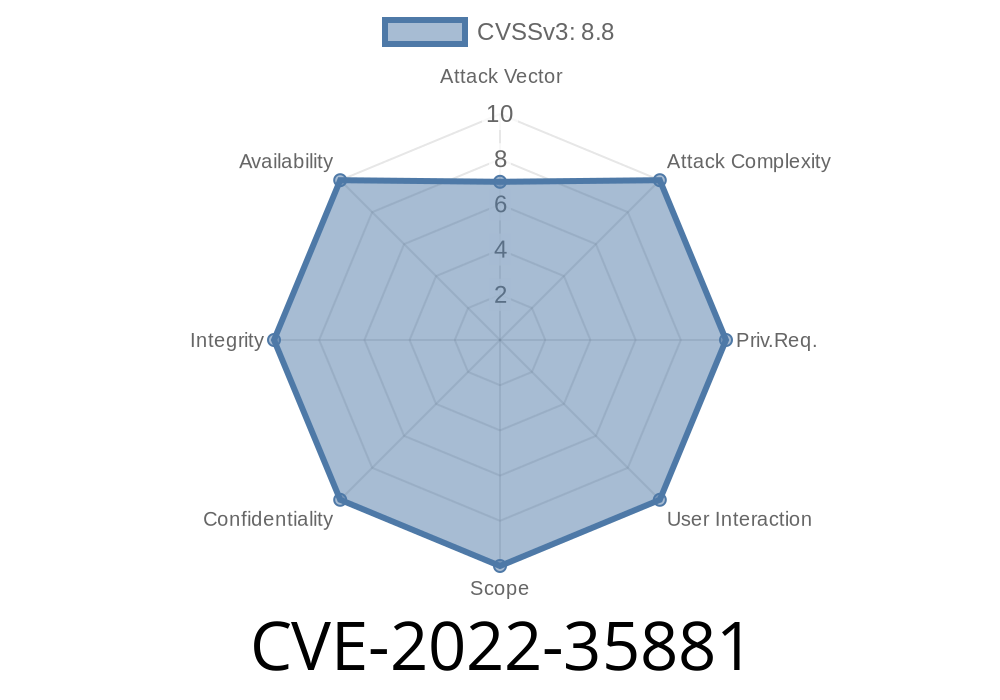The modern smart home comes with promise – and, unfortunately, with vulnerabilities. In this long-read, we'll dig deep into CVE-2022-35881, a critical set of format string injection flaws found in Abode iota All-In-One Security Kit (versions 6.9Z and 6.9X). These issues affect the device's UPnP logging features, potentially letting attackers cause memory corruption, leak sensitive data, or disrupt your whole alarm system. Let's break down how this bug works, why it's dangerous, and see a demonstration exploit in action.
What’s Vulnerable?
The Abode iota All-In-One Security Kit is a smart home hub, packing alarm features, environmental sensors, and connectivity for dozens of other smart home devices. Its firmware integrates a UPnP (Universal Plug and Play) stack for network communication. Unfortunately, mistakes in the UPnP error-handling code left four format string vulnerabilities in the wild, impacting logging for errorCode and errorDescription XML tags inside UPnP responses.
> Both versions 6.9Z and 6.9X are vulnerable according to Zero Day Initiative ZDI-22-1245.
The Root Cause: Format String Injection
A *format string vulnerability* happens when data from an attacker is used as the first argument to a printf-style C function (such as printf, sprintf, or syslog), and it contains format specifiers like %s, %x, or %n. Instead of just printing your string, the program can get tricked into reading (or writing) from memory, potentially leaking information or crashing.
In Abode iota, this bug lives in its UPnP response logging. When the hub receives an invalid UPnP action, it logs the errorCode and errorDescription sent by the server—but it does so *without sanitizing the input*, directly passing it to a logging function. If these fields contain things like %x, the logger will treat them as format specifiers, not as data.
Critical Functions: Where It All Goes Wrong
The main problem is inside the DoUpdateUPnPbyService handler. A simplified (pseudo) code snippet shows how input from the UPnP service is handled:
// Pseudo-code for how the UPnP stack handles errorCode/errorDescription
void DoUpdateUPnPbyService(char *errorCode, char *errorDescription) {
// This is BAD: User data is used as a format string!
syslog(LOG_INFO, errorDescription);
syslog(LOG_INFO, errorCode);
// ...
}
This should have been
// The CORRECT way
syslog(LOG_INFO, "%s", errorDescription);
syslog(LOG_INFO, "%s", errorCode);
Abode iota discovers or negotiates with this malicious service.
3. The attacker responds with error XML containing special format strings in the errorCode and/or errorDescription tags:
`xml
%x %x %x %x
MemoryDDOS %n%n%n
`
4. The Abode device logs this malicious input via syslog(), which on some systems can read or even write memory.
What Can Go Wrong?
- Information Disclosure: Memory contents leak into the logs (e.g., stack addresses, sensitive data).
- Denial of Service: Abuse of %n or malformed strings could crash the logger (and possibly the main process).
- Memory Corruption: Depending on implementation, crafted format strings may let attackers write to arbitrary locations in memory.
Live Proof of Concept Attack
Let's craft a minimal malicious UPnP response. All you need is Python and netcat to simulate the attack.
Example malicious response
<UPnPError>
<errorCode>AAAA%x%x%x%x</errorCode>
<errorDescription>INFO:%s</errorDescription>
</UPnPError>
AAAA%x%x%x%x
INFO:%s
'''
`
2. Configure your device so that it negotiates with your test server (network pivot or ARP spoofing may be necessary on real networks).
Network Isolation: UPnP should _only_ be enabled on trusted, segregated home networks.
- Log Scrubbing: Developers should never pass user input directly to logger format strings; always use the "Log: %s", var pattern.
- Professional Review: If you make smart devices, always include format string tests in your QA plan.
References & Further Reading
- ZDI-22-1245 / CVE-2022-35881 Advisory
- National Vulnerability Database - CVE-2022-35881
- Format String Bugs Explained (OWASP)
- Abode System’s Site
Conclusion
CVE-2022-35881 proves that even routine “informational” code like logging can become a vulnerability with serious consequences. This set of four bugs in Abode’s iota UPnP stack lets attackers trick the device into memory corruption, leaking secrets, or crashing essential services—all by sending tailored error messages over local network UPnP. Always sanitize user inputs, don’t trust external devices, and keep your smart home devices up to date!
Timeline
Published on: 10/25/2022 17:15:00 UTC
Last modified on: 10/27/2022 15:58:00 UTC
